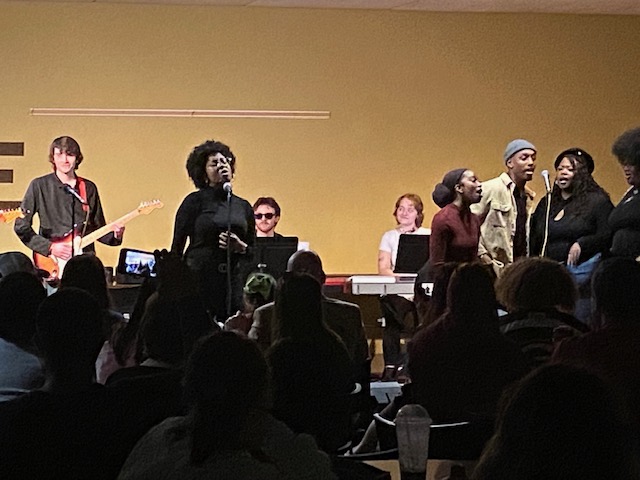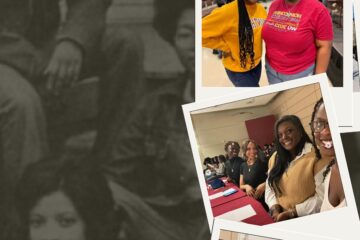The accomplishments and achievements of Blacks are honored during Black History Month. A Celebration of Black Music History took place at The Edge in DIGS on Thursday, Feb. 16.
Black musicians who transformed the world with their voices and songs were highlighted in A Celebration of Black Music History. These Black musicians came from many musical genres and periods.
Deja King, a junior music education major, felt that not much Black music is shown in the music department.
“We don’t see it in the music department. and how systemical the system was not built for it,” King said.
Jordan Hamilton, senior music performance major, “would explain how Black musicians’ achievements have never received the attention they deserved throughout history.”
“Most of our ensembles and everybody’s across the world are traditional
European,” Hamilton said.
Duke Ellington, a well-known American composer, provided the first opening ensemble. Dr. Patterson, associate professor of music explains why Duke Ellington is his favorite American composer.
“His body of work covers everything from big band music, radio, tours, popular music, sacred songs, and orchestral works,” Patterson said.
“He was doing this 10 to 15 years before anybody else was catching on to some of these styles and trends.”
Historic music from varying periods can help audiences understand the condition of life at the time it was created. The ensemble’s last composition was a piece of Haitian music that represented the struggle for African independence.
“You can hear it play through the music, even with the bass portion, which begins with one voice screaming out, then more, and builds up with the intensity that drew us to that piece,” Hamilton said.
Hamilton performed at The Edge for the first time when performing in the ensemble. “Compared to the other events, it was definitely more lively. I felt like we were more intact with the fans and listeners,” Hamilton said. “It felt like home.”
When people are performing an ensemble audience would clap at the end of the song. “You don’t have to be prim and proper and clap at the end of the song, if you like it, speak up,” King said. “If you like what someone is saying, say hallelujah and shout amen, then we are allowed to do that.”
Black music was influenced by historical circumstances and a range of emotions. King remarked that spirituals were the origin of African American music.
“You can hear the pain, struggle, hardship, and oppression in some parts of the music.” King said.
King herself cried after the ensembles. “All the people’s lives that were saved last night. People who were on their last legs just needed a pick-up,” King said. “I know I was on my last leg, I need something to keep me going. To feel an environment of welcomeness, home, and appreciation.”
A Celebration of Black Music History is trying to build a community for the commercial break.
“When I think about the commercial break, I would think of a vibe,” King said. “We could trust each other and be vulnerable with each other.”
A Celebration of Black Music History is welcoming everyone on campus who is interested in joining. Those interested in joining, showing support, donating to A Celebration of Black Music History, or being a part of a commercial break can email pattersont@winthrop.edu. Their Instagram is @wucommerical_break.




